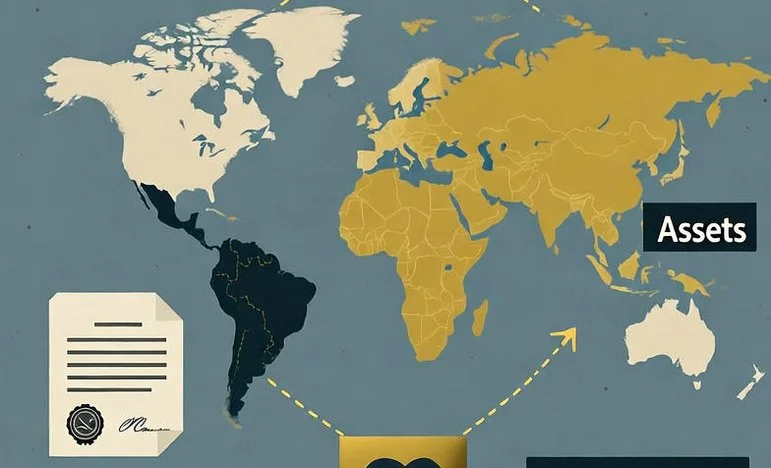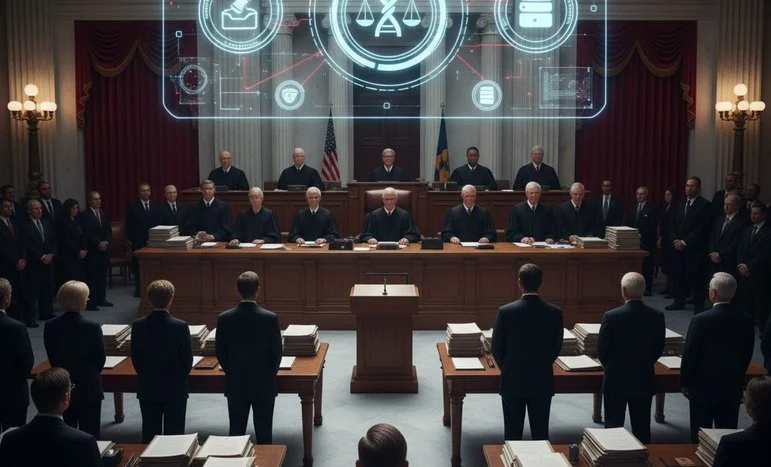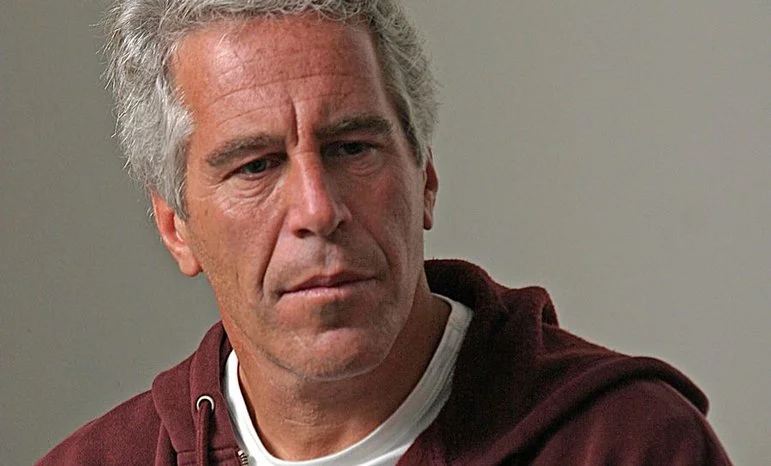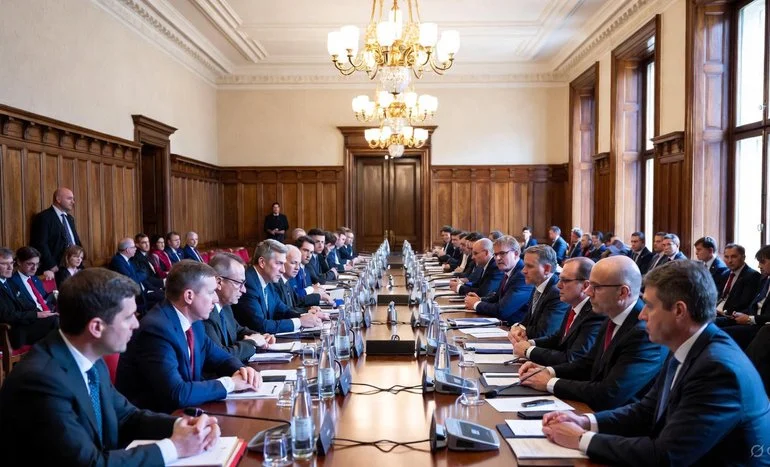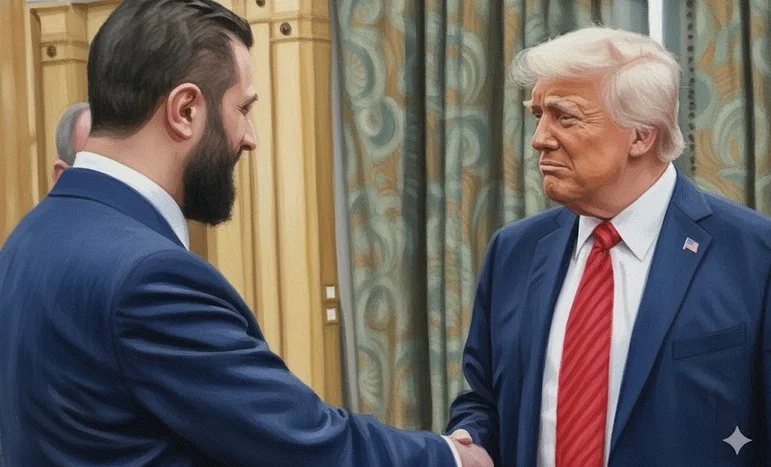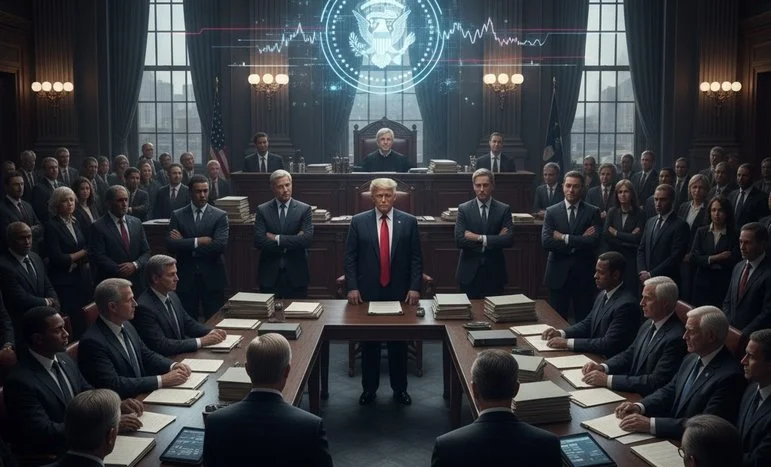
Trump-Era Indictments Highlight DOJ Pressure and Politicized Prosecutions
Introduction
The Trump era has witnessed a series of high-profile indictments that have raised alarms about the politicization of the Department of Justice (DOJ). Figures such as James Comey and New York Attorney General Letitia James—the latter sued by Trump over alleged asset inflation—have found themselves targeted, drawing attention to the intersection of law, politics, and free speech.
Public comments by former President Trump have amplified concerns, highlighting the potential for political influence over prosecutorial decisions and the broader implications for due process rights.
Background on High-Profile Indictments
James Comey
James Comey, the former FBI Director, faced scrutiny during and after his tenure, linked to investigations involving Trump’s administration. Charges or investigations, perceived as retaliatory or politically motivated, have sparked debates on:
- Accountability versus political retribution.
- The impact of public narratives on legal proceedings.
- The importance of judicial independence in politically sensitive cases.
New York AG Letitia James
New York Attorney General Letitia James has been a central figure in lawsuits against Trump, notably regarding alleged asset inflation. In response, high-profile legal actions have been framed by observers as politicized prosecutions, prompting:
- Questions about impartiality in state-level legal actions.
- Analysis of potential precedent for retaliation against public officials.
- Concerns over institutional checks and balances in politically charged legal environments.
DOJ Pressure and Political Implications
Critics argue that the Department of Justice has at times faced undue influence under the Trump administration, especially when prosecutorial priorities appear aligned with political objectives. Key considerations include:
- Selective enforcement and its effects on public trust.
- Chilling effects on free speech when legal threats target political actors or whistleblowers.
- Precedent-setting implications for the independence of federal prosecutors.
These dynamics have sparked broader debate on whether DOJ actions are legitimate law enforcement or instruments of political strategy.
Free Speech and Due Process Concerns
The indictments raise important constitutional questions:
- First Amendment implications, particularly if political criticism or litigation triggers retaliatory charges.
- Due process considerations, ensuring defendants receive fair treatment without external political pressure.
- Judicial oversight, with courts expected to act as a buffer against potential abuses.
Legal scholars highlight that maintaining DOJ independence is essential to safeguard both rule of law and democratic governance.
Broader Political Context
High-profile indictments during politically charged periods can influence:
- Public perception of the justice system.
- Electoral politics, as prosecutions and charges become focal points of campaigns.
- Institutional integrity, with long-term effects on how citizens and officials engage with legal processes.
Analysts note that politically sensitive prosecutions can undermine trust in impartial governance, making transparency and judicial scrutiny more crucial than ever.
Global Comparisons
Other democracies have faced similar challenges in politically sensitive prosecutions:
- Countries with strong judicial independence tend to prevent prosecutions based solely on political opposition.
- Nations with weaker oversight often see targeted legal actions against political adversaries, eroding public trust.
The U.S. experience underscores the importance of checks and balances, ensuring that legal accountability is not conflated with political vendettas.
Trump-era indictments, particularly those involving James Comey and NY AG Letitia James, highlight the complex intersection of politics, law, and public perception.
Concerns about DOJ pressure, free speech, and due process remain central to discussions on governance and judicial independence. As the U.S. continues to navigate politically sensitive prosecutions, the imperative for transparent, impartial legal processes is critical to maintaining both public trust and democratic stability.
We appreciate that not everyone can afford to pay for Views right now. That’s why we choose to keep our journalism open for everyone. If this is you, please continue to read for free.
But if you can, can we count on your support at this perilous time? Here are three good reasons to make the choice to fund us today.
1. Our quality, investigative journalism is a scrutinising force.
2. We are independent and have no billionaire owner controlling what we do, so your money directly powers our reporting.
3. It doesn’t cost much, and takes less time than it took to read this message.
Choose to support open, independent journalism on a monthly basis. Thank you.
